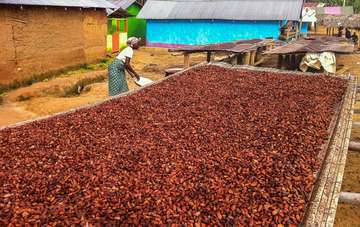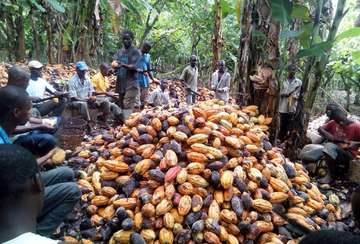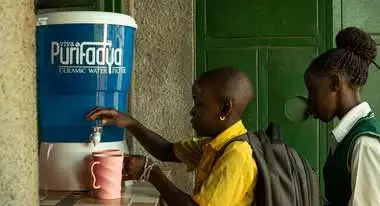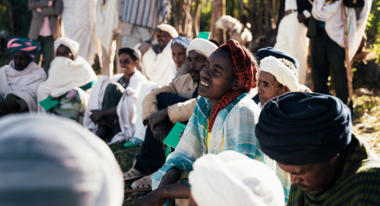Why Cocoa is Still Much Too Cheap
Producers in Africa are sceptical about new ethical and ecological standards set by European regulations on supply chains. Because sustainability does not come for free.
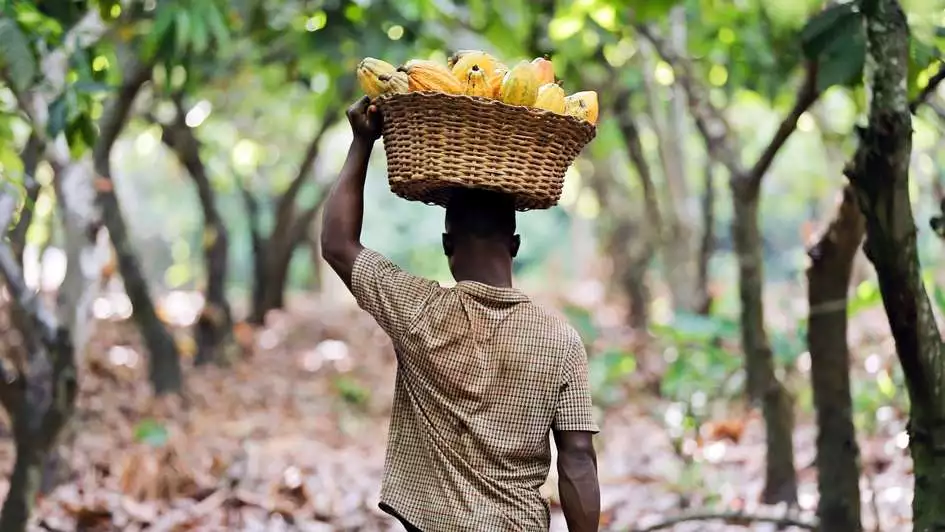
There are numerous challenges within European supply chains that can be broadly divided into human rights issues and environmental concerns. Depending on the specific supply chain, human rights issues may vary widely, including exploitation such as child labour, forced labour, and poor working conditions, among others. Meanwhile, environmental problems can encompass deforestation, resource depletion, and more.
Cocoa farming exemplifies these issues well. The European Union sources most of its cocoa beans from West Africa, where human rights and environmental challenges are prevalent at the source. Reports of child labour in cocoa production have emerged from Ghana and Ivory Coast, the two largest producers, as well as from Nigeria, another source for the EU. (1) Additionally, trafficking and child slavery are significant concerns within cocoa farming. (2) Environmentally, cocoa farming is a leading cause of deforestation in these countries, resulting in numerous local and regional issues. (3)
Recently, the European Union began developing a supply chain law to ensure that products imported into Europe are free from human rights abuses in their production and do not contribute to environmental problems. This law, known as the Corporate Sustainability Due Diligence Directive (CSDDD), seeks to hold companies accountable for any harm they inflict on people and the environment. The CSDDD outlines requirements for companies operating within the EU market to conduct human rights and environmental due diligence throughout their value chains.
In the context of cocoa beans, the directive seeks to ensure that cocoa beans imported into the region are not associated with deforestation or child labour. Through a benchmarking process, cacao-producing countries or regions will be categorized based on the extent and risk of deforestation. Companies sourcing cocoa from areas deemed high-risk will be obligated to undertake additional due diligence steps compared to those purchasing from areas classified as low-risk.
Small-scale farmers and individuals from the Global South are skeptical of this EU directive, as it fails to adequately address their concerns.
Why Do Cocoa Farmers Use Unsustainable Practices?
Farmers resort to unsustainable practices because the price they receive for their cocoa does not cover the costs of sustainable production methods. To employ wage labour (as opposed to using child labour), cultivate cocoa without resorting to deforestation, and still earn a living wage, farmers would need to earn significantly more than their current income.
Based on my interactions with cocoa farmers, there is a clear link between the price they receive for their produce and their ability to hire wage labour. When prices are relatively high, they employ wage labour; however, when prices fall, they resort to more affordable sources of labour, starting with family labour (sometimes even taking their children out of school to help on the farm), then extended family labour, child labour, and other forms of labour exploitation. A 2019 study by Jeff Luckstead and his colleagues estimated the cost incentive necessary to eliminate child labour in Ghana's cocoa farming, concluding that farmers would need to earn a 56.271% premium to eradicate all forms of child labour. (4)
Farmers would need to earn a 56% premium to eradicate all forms of child labour.
Michael Ehis Odijie University College LondonSimilarly, the cost of transitioning to deforestation-free cocoa cultivation in West Africa can be calculated. Research has shown that despite their environmental impact, cocoa farming methods such as slash-and-burn, which lead to deforestation, reduce costs for farmers and offer short-term benefits. (5) Thus, transitioning to deforestation-free cocoa or agroforestry, which is environmentally sustainable, incurs additional costs.
Cocoa farmers are already aware of the issues at hand. They require more than just education or training on good farming practices, contrary to what some in the chocolate industry might believe. The primary need of cocoa farmers is to be compensated sufficiently to hire wage labour, employ deforestation-free cultivation methods, and still earn a living wage. However, the industry's demand for cheap cocoa, and its unwillingness to pay fair prices, effectively forces farmers into relying on child labour.
For instance, Kpomin Minrienne Kole Edi, a cocoa farmer from Côte d’Ivoire, shared how her cooperative opted for sustainable methods (eschewing child labour and deforestation). Yet, they were left with large volumes of unsold cocoa because traders were reluctant to purchase the sustainably produced cocoa, which was more expensive to produce. Despite prior agreements with traders promising to buy, leading to significant investments in sustainable cultivation methods, her cooperative had no choice but to sell their product as conventional cocoa at a lower price - potentially below the cost of production. (6)
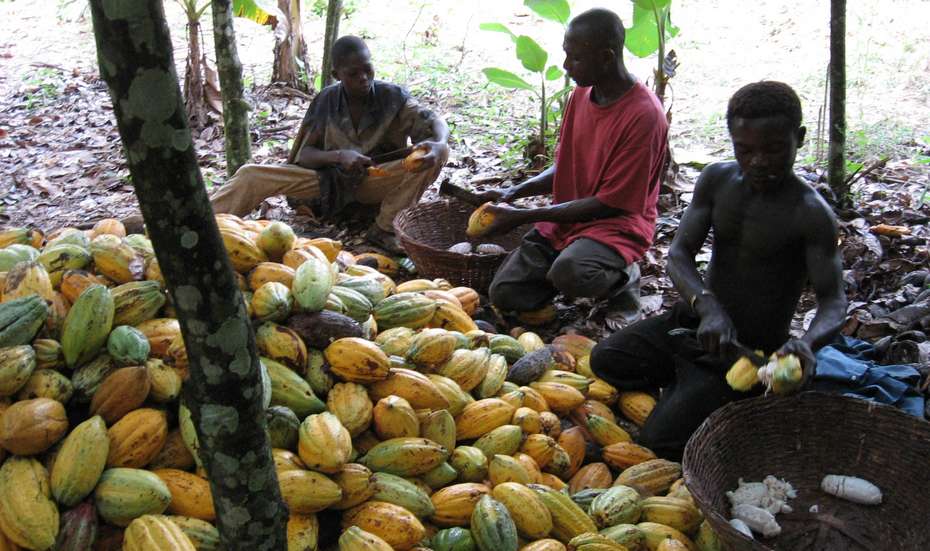
In the conventional cocoa industry, approximately 2.1 million children work on cocoa farms in Ivory Coast and Ghana, many of whom are subjected to the worst forms of child labour. This number decreases when there is a relative increase in producer prices, as farmers can then afford proper labour. Essentially, these children are subsidizing chocolate products in Europe; chocolate is far too inexpensive considering the human and ecological costs involved. The initial discussion in any effort to transition to a supply chain that supports human rights and environmental standards should focus on the true cost of producing cocoa under sustainable conditions and the market's inability to cover these costs.
What Should Be Included in the EU Supply Chain Law
The new EU supply chain law does not address the cost of sustainable production for small-scale farmers. The EU's proposed directive could include provisions for a living income and the costs of sustainable production. Just as the directive mandates companies to ensure their products are free from child labour and deforestation, it could also require them to verify that the farmers who cultivated the commodities receive a living income and can cover the costs of sustainable production.
Relying solely on the market for farmers' incomes is unsustainable, as it is intricately linked to sustainability issues. The EU's failure to account for the costs of sustainable practices is a key reason why local researchers and farmers view the law with skepticism.
I fear this may turn out to be another case of greenwashing, though only time will tell. Recently, it has become apparent that the final CSDDD has been significantly diluted compared to the initial proposal.
Africa Must Be Proactive
The issues within the cocoa value chain are most acutely understood and felt at the local level, where their detrimental effects are direct and immediate. Conversations with cocoa farmers at the farm level, particularly concerning child labour, trafficking, and deforestation, often center on prices and production costs.
The governments of Ghana and Ivory Coast are complicit in these issues, largely due to their dependency on commodities for foreign exchange. This dependency has led the ruling elites to establish control mechanisms, such as the Ghana Cocoa Board, ensuring that small-scale farmers continue to farm regardless of the worsening conditions. Despite this, I believe that solutions to human rights and environmental problems can be found locally.
The current shortfall in cocoa production, potentially a blessing in disguise, alongside the subsequent rise in cocoa bean prices, offers a prime opportunity to tackle the structural issues plaguing the cocoa industry. Both governments are currently exploring this path. Here is my recommendation: calculate the real cost of producing cocoa with wage labour, in a way that prevents deforestation and ensures farmers a sustainable income. A minimum price should then be set above this cost.
Does the Future Lie in "Fairmade"?
Another pressing issue that requires greater proactive efforts in Africa is the local processing of cocoa. The majority of cocoa beans produced in West Africa are exported in their raw form, forgoing the economic advantages that could be gained from processing them into finished products like chocolate. This situation is attributed to a range of factors: the substantial initial investments needed for processing facilities, limited access to capital, gaps in technical expertise, and the absence of a large local market.
Additionally, global market dynamics and trade barriers often favor the export of raw beans over processed cocoa, further discouraging local processing initiatives. However, encouraging local processing could enable these countries to retain more economic benefits domestically.
The emerging concept of “fairmade”—which emphasizes the production of chocolate at its origin to benefit local communities—could represent the future of sustainable industry practices. There is no valid reason why chocolate could not be produced locally, benefiting farmers directly, and then exported to markets in Europe and America. Some small-scale European manufacturers are doing this already.

Footnotes:
(1) Sadhu, Shanto, et al. Assessing Progress in Reducing Child Labor in Cocoa Production in Cocoa Growing Areas of Côte d’Ivoire and Ghana. NORC at the University of Chicago, https://foodispower.org/wp-content/uploads/2020/12/CONFIDENTIAL_NORC-2018-19-Cocoa-Report-DRAFT_English-3.pdf.
(2) Michael Odijie, "Cocoa and child slavery in West Africa." In Oxford Research Encyclopedia of African History. 2020.
(3) Global Forest Watch (2024) Ending Deforestation from Cocoa in West Africa with New Data-Driven Resources https://www.globalforestwatch.org/blog/data/data-resources-ending-deforestation-cocoa-west-africa/
(4) Jeff Luckstead,, Francis Tsiboe, and Lawton L. Nalley. "Estimating the economic incentives necessary for eliminating child labor in Ghanaian cocoa production." PloS one 14, no. 6 (2019): e0217230.
(5) Ruf, François, and Goetz Schroth. "Chocolate forests and monocultures: a historical review of cocoa growing and its conflicting role in tropical deforestation and forest conservation." Agroforestry and biodiversity conservation in tropical landscapes 6 (2004): 107-134.
(6) Catarina Vieira, Elena Lunder, Fanny Gauttier and Meri Hyrske-Fischer (2023) Smallholders from global south take the stage for inclusive CSDDD. https://www.euractiv.com/section/agriculture-food/opinion/smallholders-from-global-south-take-the-stage-for-inclusive-csddd/
